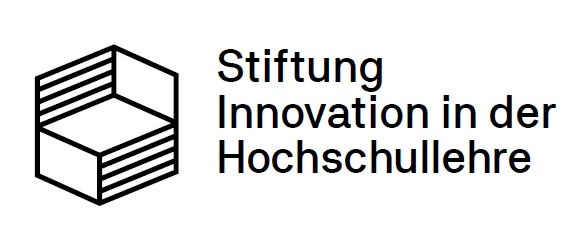digi.peer - Digital peer mentoring in the context of a literature and research workshop in the Bachelor's degree program in Social Work
In the digital teaching project digi.peer, students in peer groups are to learn how to use digital future skills when writing their academic theses.
Project background
TH Rosenheim has a good digital infrastructure. Due to the pandemic, digital teaching formats have been expanded since 2020 as a trigger for the further use of digital tools in university teaching, so that a digital teaching format in peer mentoring that has been used for two semesters can be used to expand it with regard to virtual methods.
This established teaching format is already known among students and is well received as an optional offer, so that a fundamental openness to a further development of the format towards virtual teaching methods can be expected. In the digital teaching project “Digital Peer Mentoring in the Context of a Literature and Research Workshop in the Social Work Bachelor’s Degree Program” (digi.peer), which is based on a tried-and-tested digital teaching concept, students should, against this background, participate in the process of co-construction in peer groups Learn how to use digital future skills in relation to applications when writing your academic theses as central future skills.
Project objective
Aim of the project "digi.peer" project is to provide digital support for students on the BA course in Social Work in preparation for their bachelor theses in peer mentoring. The teaching project on the digital literature and research workshop for the preparation of the final theses in the BA program "Social Work" is in research into peer relationships based on socialization theory. The criterion of reciprocity is particularly important here. It is understood as a prerequisite for a joint co-construction process, which specifies the principle of peer groupspeers as a situated reference group, but simultaneously with all persons involved in the interaction framework.
The aim of digital peer mentoring in the context of a literature and research workshop in the Bachelor's degree program in Social Work is the application and reflection of these co-construction processes in peer groups in situated learning. In four measures, digital virtual tools will initially be will be used to initiate scientific work processes. Subsequently, the writing process will be reflected on the basis of the legal for the use of AI.
Through the use of virtual spaces with VR glasses, the implementation and evaluation of the empirical studies in the co-construction process. In a final virtual conference the results of the work will be presented, reflected on and made accessible to a broad public.
Project procedure
In the digi.peer project, a combination of four different teaching-learning settings is used didactically: 1. Asynchronous learning units, 2. Peer coaching exchange, 3. Plenum mentoring meetings, 4. Individual coaching. By combining the various teaching and learning methods in an activating blended learning setting, students can transfer the module content into their own writing project using numerous exercises and techniques. In addition to structured support, the different elements, group contexts, learning locations, topics and tasks also make it possible to understand challenges in the different phases of a writing process from different perspectives, to find suitable solutions together and can be used in an interdisciplinary manner.
The planned digi.peer teaching project takes up the following methods in digital peer mentoring in four measures: 1. Work with collaborative tools, 2. Scientific work with and legal requirements for working with AI, 3. Virtual cooperation with VR glasses, 4th digital final conference on future skills and digitalization competence.
Innovation
In the project digi.peer, digital virtual tools are to be used to initiate scientific work processes. Subsequently, the writing process on the basis of the legal requirements for the use of AI will be reflected upon. The use of virtual spaces with VR glasses will facilitate the implementation and evaluation of the empirical studies in the co-construction process recorded. In a final virtual conference, the results of the presented, reflected upon and made accessible to a broad public. The aim is to reflect on the use of digital and virtual tools as key skills for the future and further develop them in an interdisciplinary be further developed on an interdisciplinary basis.
Project lead
T +49 (0) 8031 / 805 - 4518 Edeltraud.Botzum[at]th-rosenheim.de
ORCID iD: 0009-0006-5688-9453
Project staff
T +49 (0) 8031 / 805 - 4547 madeleine.doerr[at]th-rosenheim.de
T +49 (0) 8031 / 805 - 2902 andrea.gergen[at]th-rosenheim.de
ORCID iD: 0009-0003-0123-7595
T +49 (0) 8031 / 805 - 2903 florian.mueller[at]th-rosenheim.de
T +49 (0) 8031 / 805 - 4525 magdalena.fuchs[at]th-rosenheim.de
T +49 (0) 8031 / 805 - 2776 petra.fuchs[at]th-rosenheim.de
johanna.mahr-slotawa[at]th-rosenheim.de
ORCID iD: 0009-0002-7305-6008
Project collaboration
constantin.bueckers[at]th-rosenheim.de
alexander.meidt[at]stud.th-rosenheim.de
kim.moskopp[at]th-rosenheim.de
lara.bimueller[at]stud.th-rosenheim.de
tate.jaehne[at]stud.th-rosenheim.de
Project duration
2024-04-01 - 2026-03-31Project funding

Funding programme
Stiftung Innovation in der Hochschullehre
Weblinks
06/25 Lehrförderpreis 202505/25 KI trifft Future Skills - University: Future Festival
04/25 Virtuelle Räume und KI in der Hochschuldidaktik – DiKuLe-Symposium
03/25 Digi.peer+ Podcast bei ShowYourScience
06/24 digi.peer+ Zertifikatskurs (Gastschlüssel digi.peer+)


